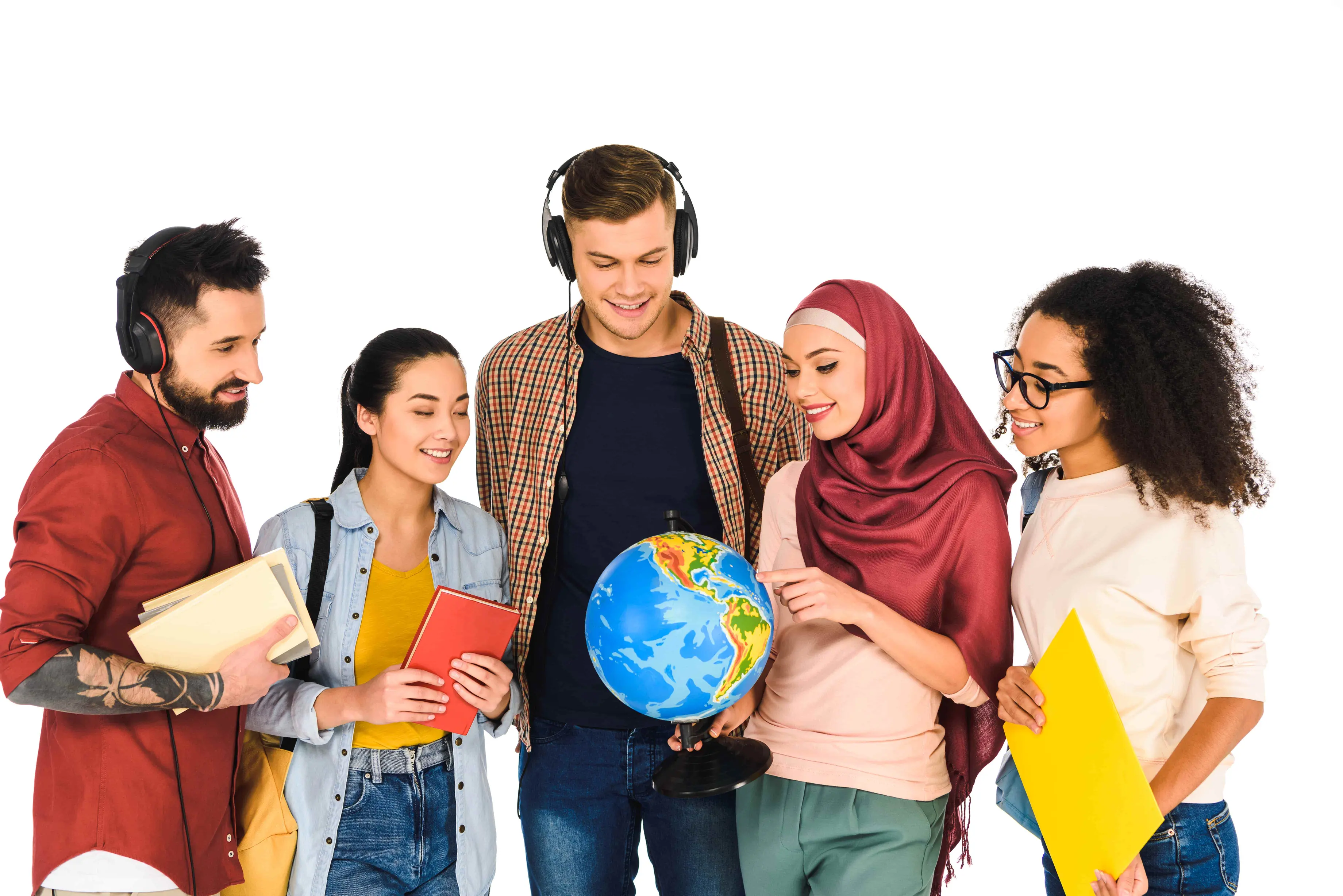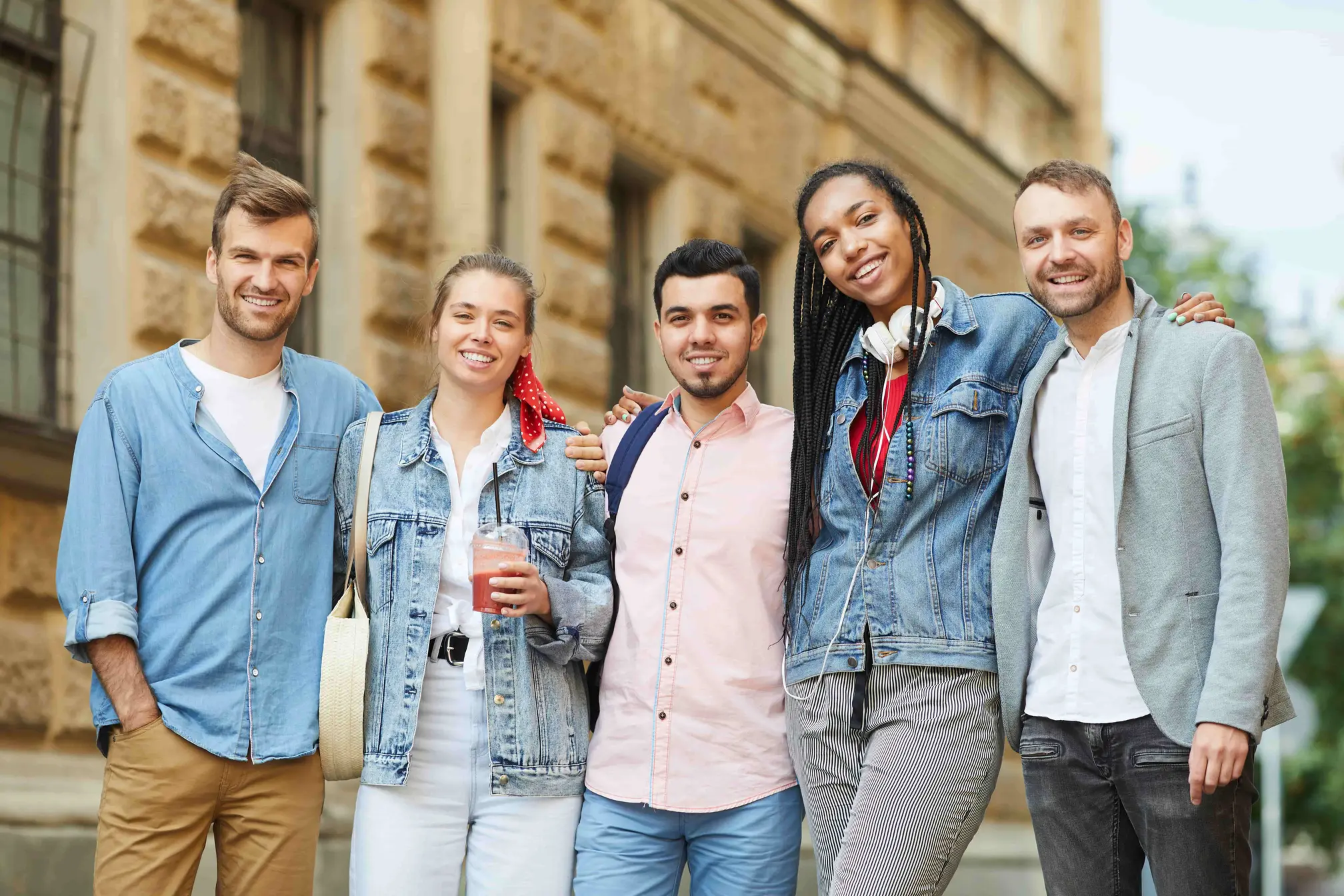Tips for cultural integration include learning basic Arabic phrases to ease communication, participating in local festivals and being open-minded about various traditions.
1. Learn basic Arabic words:
Arabic is the official language of the UAE. While English is widely spoken, learning basic Arabic phrases can make it easier to interact and show respect for local culture.
| Arabic word |
Meaning |
| Marhaba |
Hello |
| Salam |
Peace / Hello |
| Shukran |
Thank you |
| Ma’a Salama |
With peace (is used as a parting greeting) |
| Ahlan wa sahlan |
Welcome |
| Afwan |
You're welcome / Excuse me |
| Mafi mushkila |
No problem |
| Yalla |
Let's go / Hurry up |
| Insha'Allah |
God willing (used to express hope for the future) |
| Sahtein |
Two health (a phrase used when someone is eating) |
| Habibi/Habibti |
My dear (used affectionately for friends or loved ones) |
| Jazak Allah Khair |
May God reward you with goodness (a way to say thank you) |
These terms can help you connect with locals and show respect for the Arabic language and culture during your time in Dubai!
2. Respect religious practices:
The UAE is predominantly Islamic and understanding the country's religious and cultural practices is crucial. For example, during Ramadan, Muslims fast from dawn until sunset. Having an idea of these customs can help you better understand Dubai’s traditions and have respect for them.
Understanding these practices not only helps with social interactions but also demonstrates a commitment to cultural integration. By participating in or acknowledging these events, students can show respect for local traditions and strengthen their connections with the Emirati community.
3. Understand local cuisine:
Emirati cuisine is an integral part of the culture. Traditional dishes such as Machboos (a spiced rice dish) and Luqaimat (sweet dumplings) are must-tries.
Traditional dishes to try:
| Dish |
Description |
| Machboos |
Machboos is a spiced rice dish typically made with chicken, lamb, or fish. It is flavoured with a blend of spices such as saffron, turmeric and cardamom, giving it a unique aroma and taste. |
| Luqaimat |
These sweet dumplings are made from flour, sugar and yeast, deep-fried until golden brown and then drizzled with date syrup or honey. They are crispy on the outside and soft on the inside. |
| Al Harees |
A simple yet hearty dish made from wheat and meat, Al Harees is slow-cooked until it reaches a porridge-like consistency. It is often flavoured with salt and served with ghee (clarified butter). |
| Shawarma |
While not originally Emirati, Shawarma has become a beloved street food in Dubai. It consists of marinated meat (usually chicken or lamb) cooked on a vertical rotisserie and served on pita bread with garlic sauce and vegetables. |
Emirati cuisine is not just about food; it reflects the rich cultural heritage and traditions of the UAE. The flavours and ingredients used in traditional dishes tell stories of the region's history, geography and social customs.
4. Explore local markets:
Exploring local food markets is also an important tips for international students and will give you a better insight into Emirati culinary traditions.
- Souk Al Bahar: Located near the Burj Khalifa, this market offers various dining options where you can sample traditional Emirati dishes alongside international cuisines.
- Deira Fish Market: A bustling hub where fresh seafood is sold daily. Here, you can witness local fishing practices and even purchase fresh fish to cook at home.
- Ripe Market: A farmer's market featuring organic produce, local delicacies and handcrafted goods. It is an excellent place for students to connect with local vendors and learn about traditional ingredients.
Visiting these markets provides an opportunity to taste authentic dishes while experiencing local culture.
5. Follow social norms and practices:
Greetings are an important part of Emirati culture. A handshake is common among men; however, women may prefer to wait for a man to extend his hand first. Additionally, using the phrase "Salaam alaikum" when greeting someone can be appreciated.
Follow this dress code and make sure you don’t disrespect the culture. While Dubai is relatively liberal compared to other Middle Eastern cities, modesty in dress is appreciated. Both men and women should avoid tight or revealing clothing in public spaces.
General guidelines
- Coverage: Both men and women should aim to wear clothing that covers their shoulders and knees when in public spaces. This applies to shopping malls, restaurants and public transportation.
- Avoid tight clothing: Clothing that is too tight or revealing is generally frowned upon. Loose-fitting garments are preferable as they align with local customs regarding modesty.
Specific recommendations for women
- Long skirts or dresses that reach below the knee
- Loose-fitting trousers paired with long-sleeve tops
- T-shirts with sleeves covering at least the upper arm
Specific recommendations for men
- Long trousers or jeans
- Collared shirts or T-shirts (preferably with sleeves)
While Dubai is known for its modernity and liberal lifestyle, modesty in dress remains an important aspect of Emirati culture. Understanding the dress code can help international students adjust in social situations more comfortably.
6. Participate in cultural exchange programmes at your institution:
Dubai hosts numerous cultural events that celebrate its diversity, allowing students to experience different customs. Engaging in community events and learning about the history and values of the UAE will not only enhance your experience but also help you build meaningful connections.
Many institutions, including GBS Dubai, offer cultural exchange programmes that allow international students to engage with local communities. This involvement can enhance your understanding of Emirati culture and create lasting friendships.
7. Build your network with locals:
Engaging with Emirati students and residents can provide invaluable insights into daily life in Dubai. Attend local events or community gatherings to meet locals and learn about their customs firsthand.
As an international student in Dubai, embracing these aspects will enrich your experience and help you integrate more seamlessly into the society.



